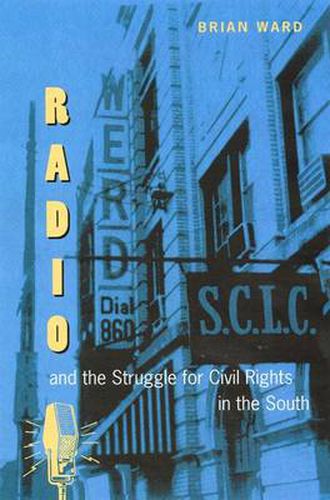Readings Newsletter
Become a Readings Member to make your shopping experience even easier.
Sign in or sign up for free!
You’re not far away from qualifying for FREE standard shipping within Australia
You’ve qualified for FREE standard shipping within Australia
The cart is loading…






This title is printed to order. This book may have been self-published. If so, we cannot guarantee the quality of the content. In the main most books will have gone through the editing process however some may not. We therefore suggest that you be aware of this before ordering this book. If in doubt check either the author or publisher’s details as we are unable to accept any returns unless they are faulty. Please contact us if you have any questions.
While focusing on civil rights activities in Atlanta, Birmingham, Charlotte, Washington, D.C., and the state of Mississippi, the book draws attention to less well-known sites of struggle, such as Columbus, Georgia, and Columbia, South Carolina, where radio also played a vital role. It explains why key civil rights leaders like Martin Luther King and organizations, such as the NAACP, SCLC, and SNCC put a premium on access to the radio, often finding it far more effective than the print media or television in advancing their cause. Ward rescues from historical obscurity a roster of colorful deejays, announcers, station managers, executives, and even the odd federal bureaucrat, who made significant contributions to the freedom struggle through radio, and he restores radio to its rightful place in the history of black protest, race relations, and southern culture.
$9.00 standard shipping within Australia
FREE standard shipping within Australia for orders over $100.00
Express & International shipping calculated at checkout
This title is printed to order. This book may have been self-published. If so, we cannot guarantee the quality of the content. In the main most books will have gone through the editing process however some may not. We therefore suggest that you be aware of this before ordering this book. If in doubt check either the author or publisher’s details as we are unable to accept any returns unless they are faulty. Please contact us if you have any questions.
While focusing on civil rights activities in Atlanta, Birmingham, Charlotte, Washington, D.C., and the state of Mississippi, the book draws attention to less well-known sites of struggle, such as Columbus, Georgia, and Columbia, South Carolina, where radio also played a vital role. It explains why key civil rights leaders like Martin Luther King and organizations, such as the NAACP, SCLC, and SNCC put a premium on access to the radio, often finding it far more effective than the print media or television in advancing their cause. Ward rescues from historical obscurity a roster of colorful deejays, announcers, station managers, executives, and even the odd federal bureaucrat, who made significant contributions to the freedom struggle through radio, and he restores radio to its rightful place in the history of black protest, race relations, and southern culture.